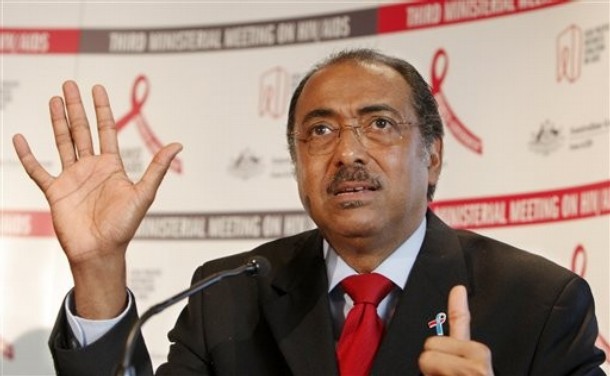Stop discrimination against vulnerable populations, UNAIDS
Chhay Sophal

Phnom Penh (1 March 2014): For the campaign of “Zero Discrimination Day” on Saturday, UNAIDS expressed its concerns for discrimination, violence and abuse against Most at Risk Populations (MARPs) — Men Who Have Sex with Men & Tran Gender, Entertainment Workers/Sex Workers, and Injected Drug Users — and People Living with HIV/AIDS (PLHA).
As it is the first campaign since it has been officially launched during the World AIDS Day on 1 December 2013, the ‘Zero Discrimination Day, 1 March’ is moving to raise the global awareness of stopping discrimination against MARPs and PLHA everywhere as they are vulnerable populations.
“…, I am deeply concerned about the growing wave of punitive approaches and laws in different countries. Laws which risk undermining the rights to health and non-discrimination, as well as access to life-saving services for key populations, including people living with HIV, women, men who have sex with men, sex workers, transgender people (LGBT) and people who use drugs,” Michel Sidibé, Executive Director of UNAIDS, said in a Statement obtained by Cambodia News.
“When UNAIDS announced that 1 March 2014 would become the first Zero Discrimination Day, we could not have imagined the sadly ironic timing of this important day. For all who seek a more just world, for all who strive for peace and prosperity—we must demand an end to inequality, discrimination and violence against people living with HIV, LGBT people, sex workers, people who use drugs and other vulnerable populations,” he added.
UNAIDS has consistently highlighted that discrimination is a violation of human rights and a major barrier to an effective AIDS response and yet many people living with HIV or vulnerable to it continue to face unfair treatment or unjustified criminalization, according to UNAIDS press release.
The release quoted United Nations Secretary-General Ban Ki-moon as saying “hatred of any kind has no place in the 21st century and that we must raise our voices against attacks on lesbian, gay, bisexual, transgender or intersex people.”
Discrimination has many forms, often disproportionately affecting women and citing on statistics, UNAIDS said that globally, one in three women will face gender-based violence and in “only four out of ten countries worldwide do equal numbers of girls and boys attend secondary school, and women are 10% less likely to be literate than men.”
“On Zero Discrimination Day, I ask you to speak up if someone is discriminated against or threatened––to raise awareness and to celebrate diversity. Everyone, everywhere, has a right to their dignity, security, health and dreams,” Michel Sidibé said.
